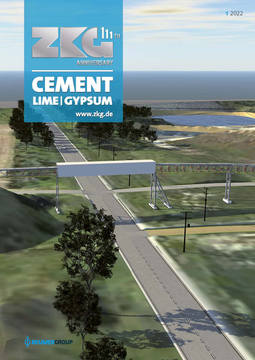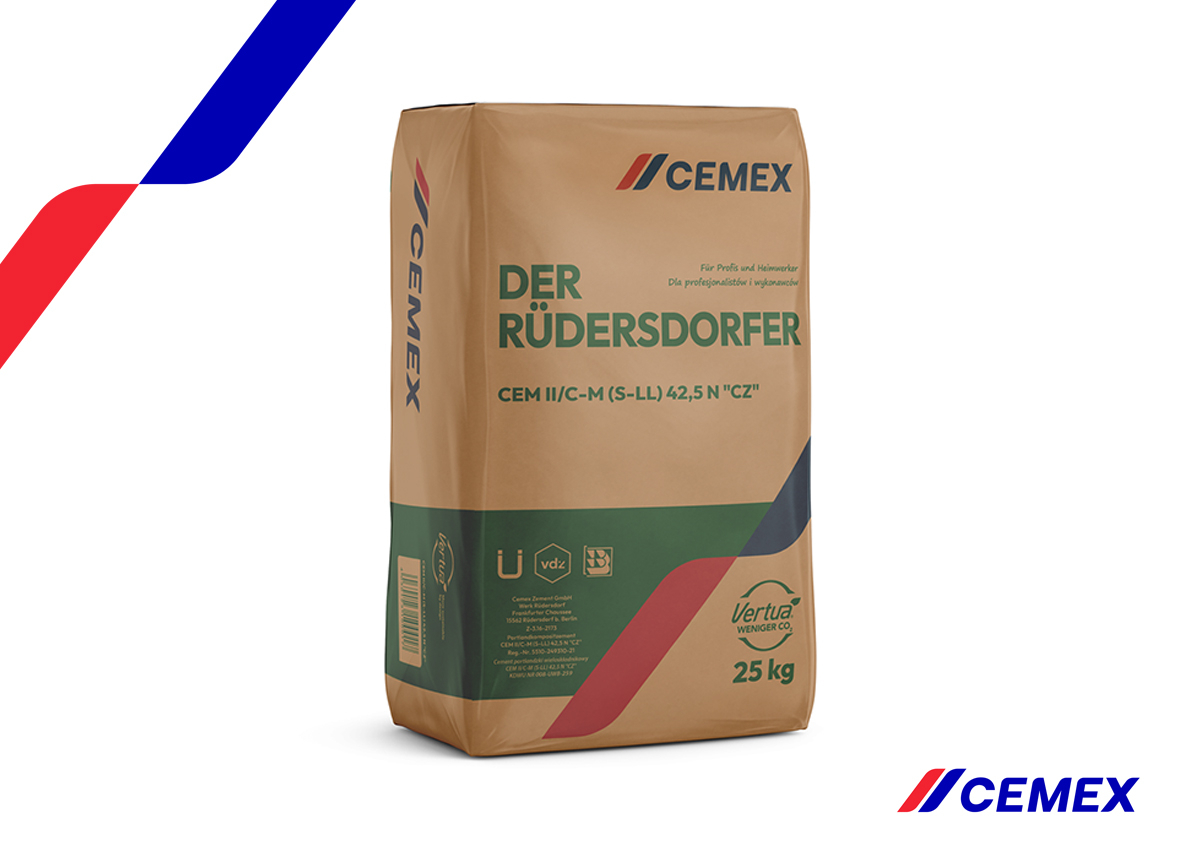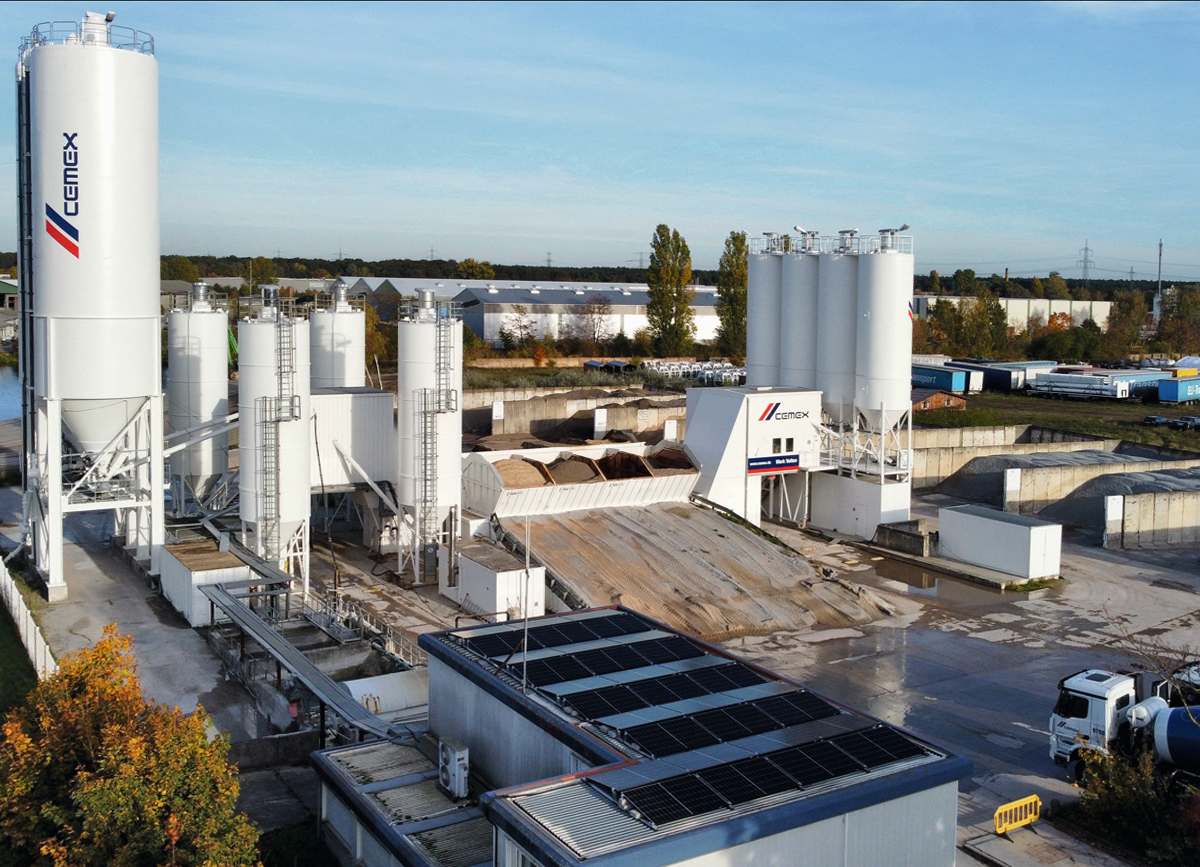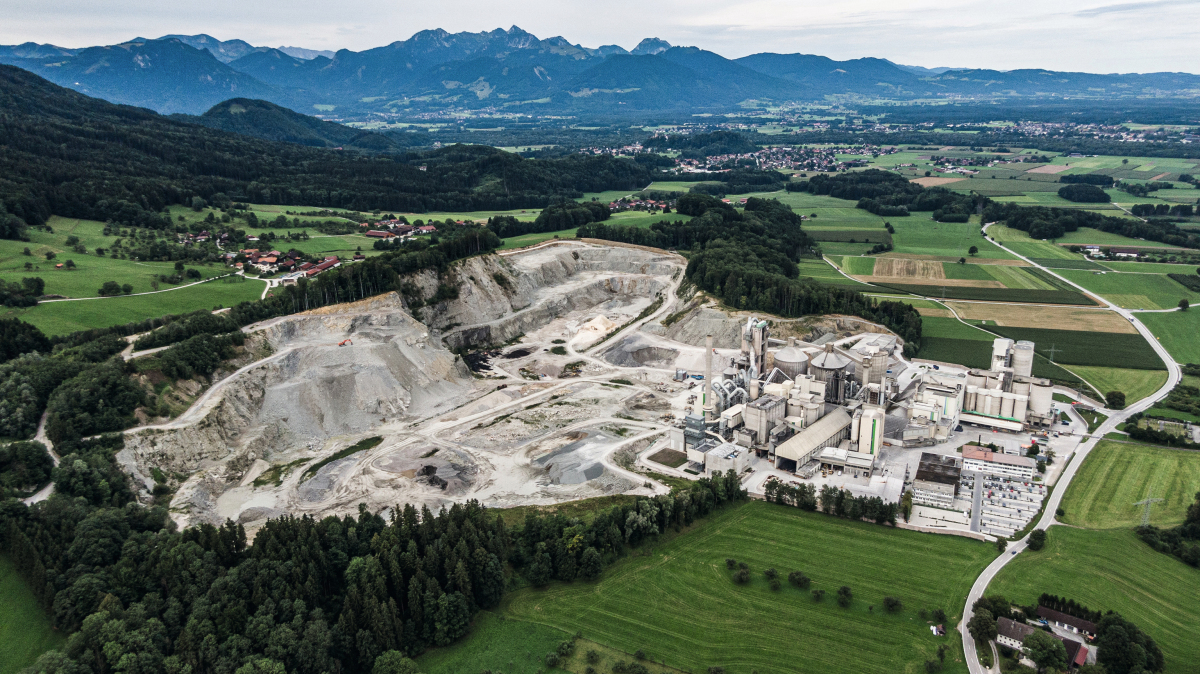Cemex Germany presents Vertua® cements with
reduced carbon footprint as next building block of “Future in Action” strategy
Cemex Deutschland AG is now labeling climate-friendly cements with the Vertua seal: the Vertua® Ultra CEM II/C-M (S-LL) ˝CZ˝ demonstrates CO2 emissions reduced by more than 40% – and strengthens Cemex’s international climate protection strategy “Future in Action”.
This new addition to the Vertua portfolio in Cemex Germany has the potential to become a milestone on the way to climate-neutral construction: Vertua Ultra CEM II/C-M (S-LL) ˝CZ˝ is a high-performance, clinker-efficient and low-chromate cement aligned to EN 197-5 for all exposure classes. It is also available as low-alkali cement. Therefore, the Vertua Ultra CEM II/C-M (S-LL) ˝CZ˝ is well suited for ready-mix concrete as well as cementitious finishing and building construction products.
The international building materials company Cemex is determined to be a global pioneer in climate protection in the building materials industry and has set itself ambitious targets as part of the “Future in Action” initiative: the company aims to produce less than 475 kg of CO2 emissions per ton of cementitious products by 2030. This corresponds to a reduction of 40% compared to the reference year 1990. By 2030, Cemex aims to reduce greenhouse gas emissions from its European production sites by at least 55% compared to 1990 and to offer climate-neutral concrete worldwide by 2050.
Among the most important levers are the climate-friendly products of the Vertua family. In Germany, for example, Cemex launched Vertua ready-mix concretes in October 2020; CarbonNeutral® products in line with the CarbonNeutral® Protocol that offer a reduced carbon footprint and the option of full carbon offsets. Since July 2021, Vertua admixtures from Cemex Admixtures have been on the market, significantly improving the sustainability performance of various applications. Now, the Vertua seal also identifies to particularly climate-friendly cements from Cemex.
Cement products are awarded a Vertua seal if CO2 emissions are reduced by at least 15% compared with a conventional Portland cement. The Vertua Ultra seal is awarded to cements with CO2 emissions reduced by more than 40%. The Vertua Classic seal indicates a reduction in CO2 emissions in a range of 15-25%, and the Vertua Plus seal indicates a reduction of 25-40%. Cemex achieves the emission reduction through non-fossil secondary fuels, less energy consumption in production and reduction of raw material related process emissions.
Vertua Ultra CEM II/C-M (S-LL) 42.5 N ˝CZ˝ corresponds to strength class 42.5 N with normal initial strength and strength development. Due to its significantly improved clinker efficiency, the high quality of the other main constituents; granulated blast furnace slag (S) and limestone (LL); and its carefully balanced composition, Vertua Ultra CEM II/C-M (S-LL) 42.5 N ˝CZ˝ has a performance comparable to a CEM I 42.5 N cement with a significantly reduced carbon footprint. In addition, it is low in alkali, making it suitable for use in concrete with alkali-sensitive aggregates. It is offered for these cases as CEM II/ C-M (S-LL) 42.5 N - NA ˝CZ˝.
The Vertua Ultra CEM II/C-M (S-LL) 42.5 N ˝CZ˝ has been successfully used in pilot applications in both ready-mix concrete and screed construction.
Vertua cements from Cemex meet the criteria for sustainable building materials. Their use significantly reduces the carbon footprint of concrete and other cement-based products. If construction projects are evaluated in terms of sustainability as part of a multi-criteria certification such as LEED and BREEAM, additional certification points can be achieved through the use of Vertua cements.
Vertua Ultra CEM II/C-M (S-LL) 42.5 N ˝CZ˝ is produced at the Rüdersdorf cement plant of Cemex Zement GmbH, a subsidiary of Cemex Deutschland AG. As a manufacturer of hydraulic building materials, Cemex Zement GmbH has many years of experience in the production of semi-finished and finished products in line with quality and performance requirements. This know-how benefits current initiatives to reduce the CO2 footprint – and thus the global climate strategy of the building materials company Cemex. As one of the most modern cement plants in Europe, Rüdersdorf has already been able to reduce direct CO2 emissions from cement production by 39% compared to 1990.
The site is considered a pacesetter in Cemex’s international CO2 strategy. As part of the global Future in Action initiative, the Carbon Neutral Alliance in Rüdersdorf stands for producing CO2-neutral cement at the Rüdersdorf plant by 2030 together with leading partners from research and industry.




